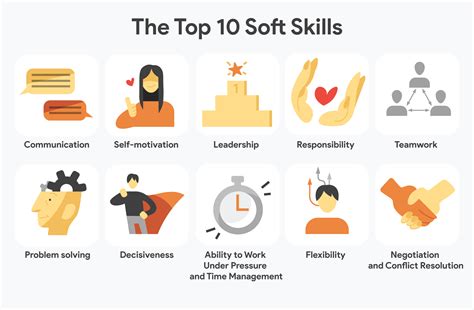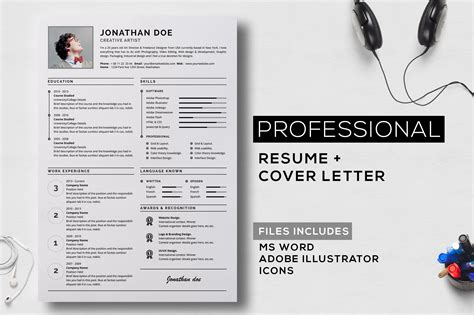In today’s competitive landscape, securing your dream job requires more than just a stellar skill set and relevant experience—it demands a strategic approach to the job search process. “Secret Strategies Unveiled: Mastering Job Search Techniques!” is your essential guide to navigating the complexities of the modern job market. From discerning the current dynamics of job opportunities to pinpointing the high-demand skills that set you apart, this blog post will equip you with invaluable insights to enhance your employability. We’ll walk you through creating impactful resumes and cover letters, leveraging the networking power of LinkedIn and social platforms, and fine-tuning your interview techniques to leave a lasting impression. Finally, we’ll unlock the secrets of negotiating salaries and job offers to ensure that the culmination of your efforts is as rewarding as possible. Prepare to transform your job search into a strategic conquest with the expertise shared in the following sections!Learn to navigate today’s job market with tips on high-demand skills, resume building, social media networking, interview mastery, and salary negotiation.
Understanding Today’s Job Market Dynamics

The landscape of the job market has mutated significantly in the past few years, rendering obsolete many traditional job search techniques that once yielded success. To traverse this new terrain, it is vital to comprehend the multifaceted dynamics that govern today’s employment ecosystem. In this era, the influx of digital transformation, remote work opportunities, and the gig economy has revolutionized how we define and approach job hunting.
An understanding of these dynamics begins with recognizing the shift towards a more flexible workforce, with companies valuing adaptability and skills over traditional long-term tenure. The prevalence of project-based roles and the emergence of platforms that support freelance work have opened new pathways for job seekers. Yet, this same shift has bred a competitive environment that necessitates staying abreast of market trends and continuously honing in-demand skills.
With the impact of automation and artificial intelligence on the job market, some professions are facing contraction, while others are flourishing. Identifying which skills are in high demand within your field has never been more crucial. Analytical reasoning, creativity, and emotional intelligence are becoming key differentiators in a market saturated with candidates possessing similar technical proficiencies. Keen awareness and strategic upskilling can position job seekers to take advantage of burgeoning opportunities.
Furthermore, the recruitment process itself has evolved. Companies and recruiters are increasingly leveraging data analysis and algorithmic match-making in their hiring strategies, which significantly impacts how resumes and applications are screened. This development accentuates the importance of crafting a winning resume and cover letter that are not only tailored to the specific industry but also optimized for keyword searches and algorithmic filters, ensuring visibility in a vast sea of applicants.
| Dynamic Factor | Impact on Job Search | Adaptive Strategy |
|---|---|---|
| Flexible Workforce | Growth of remote and gig opportunities | Develop adaptable skill sets and seek diverse work arrangements |
| In-Demand Skills | Rapid evolution of required expertise | Continuous learning and upskilling in relevant areas |
| Automated Recruitment | Increased use of AI for screening | Create AI-friendly resumes with relevant keywords |
| Market Trends | Roles and industries in flux | Stay informed and agile to navigate emerging sectors |
- Grasp the significance of adaptability in today’s fluid job market and evolve with the rising dominance of remote roles and project-based work.
- Identify and develop high-demand skills pertinent to your field, as technical expertise alone no longer guarantees job security in the face of automation.
- Understand that the staggering advancements in technology and data analytics have transformed traditional recruiting methods, ushering an era where a winning strategy is to leverage LinkedIn and other social media for networking and visibility.
- Enhance your proficiency in not just securing an interview but also in mastering the art of job interviews through comprehensive preparation, storytelling, and engagement techniques.
- Finally, equip yourself with knowledge and confidence to engage in negotiating salaries and job offers that reflect your true value to maximize your benefits in a competitive environment.
Identifying High-Demand Skills in Your Field

In today’s rapidly evolving job market, it has become essential to identify and cultivate high-demand skills to ensure you stand out during your job search. While each industry has its unique set of sought-after abilities, certain skills have universally increased in value across various fields. Knowing which capabilities to focus on can undoubtedly accelerate your career growth and enhance your attractiveness to potential employers.
To begin with, conducting thorough research is fundamental in pinpointing these high-demand skills. Seek out industry reports, job listings, and professional forums to gather information on trending proficiencies. This can involve analytical abilities, technical know-how, or soft skills such as leadership and communication. Moreover, the importance of continuous learning cannot be overstated in the context of personal development; consider engaging in online courses or professional workshops to bridge any skill gaps you may identify.
For a more structured approach, it’s helpful to categorize the in-demand skills into a few key areas. Below is a table highlighting the potential skills that job seekers might want to develop. Pay attention to the ‘Technical’, ‘Analytical’, and ‘Soft Skills’ columns to find where your current strengths lie and what areas you may want to focus on improving for better job hunting results.
| Technical Skills | Analytical Skills | Soft Skills |
|---|---|---|
| Programming Languages (e.g., Python, Java) | Data Analysis | Communication |
| Cybersecurity Best Practices | Statistical Reasoning | Teamwork |
| Cloud Computing | Business Intelligence Tools | Problem-solving |
Lastly, it’s wise to align your learning objectives with the trajectory of your chosen industry. Speak directly with professionals in the field, use informational interviews, or join industry-specific networking groups to get insider knowledge on what skills are not only currently in demand but also anticipated to be in the future. By combining this strategic approach with dedication and adaptability, your enhanced skill set will prove to be an invaluable asset in your job hunting endeavors, providing a competitive edge in the pursuit of career advancement and professional success.
Crafting a Winning Resume and Cover Letter

The journey of job hunting often begins with the creation of a compelling resume and cover letter. These critical documents are your first opportunity to make a strong impression on potential employers. To master the efficient Job Search Techniques that will set you apart from the competition, it is essential to understand the components of a winning resume and how to showcase your skills effectively.
Your resume is not just a list of past job roles; it is a strategic document that aligns your experience with the requirements of the job you are applying for. Paying close attention to detail and tailoring your resume for each position are pivotal steps. Use bulleted lists to highlight your achievements and responsibilities, ensuring that each point clearly illustrates your impact on previous organizations.
Furthermore, your cover letter should not be an afterthought; it’s an invaluable tool for explaining how your experiences make you the perfect candidate for the job. While your resume provides the factual base of your qualifications, your cover letter weaves that information into a narrative, showing potential employers your personality and enthusiasm for the role.
An often underestimated aspect of Job Search Techniques is the visual format of your resume and cover letter. While content is king, the presentation can significantly influence readability and perception. Keep formatting clean, professional, and consistent across both documents. When you have content and form in harmony, your application is more likely to survive the initial skim and secure its place in the to-be-interviewed pile.
| Document | Purpose | Key Elements |
|---|---|---|
| Resume | To provide a succinct professional summary |
|
| Cover Letter | To narrate your professional journey |
|
Leveraging LinkedIn and Other Social Media for Networking

In an era where Job Search Techniques have evolved beyond traditional methods, Leveraging LinkedIn and Other Social Media for Networking has become an indispensable strategy. LinkedIn, the premier professional networking platform, provides an unparalleled avenue for job seekers to showcase their skills, connect with industry leaders, and discover new opportunities. By engaging with the right strategies on LinkedIn, one can elevate their job hunting efforts, making it an essential part of their career toolkit.
Social media platforms, other than LinkedIn, can also provide substantial leverage for those immersed in the Job hunting process. Platforms such as Twitter and Facebook allow candidates to follow companies, join professional groups, and participate in discussions, gaining visibility and establishing professional relationships. To navigate these virtual arenas effectively, it’s crucial to understand the nuances of each platform, tailoring your approach to the culture and etiquette of the social sphere you’re engaging with.
One of the less discussed but equally important Job Search Techniques involves using specialized industry networks and forums. Engaging on platforms that cater specifically to your field can help identify high-demand skills and current trends, allowing you to adapt your approach and increase your marketability. Below is a table comparing the features of various professional networks:
| Platform | Features | Best For |
|---|---|---|
| Professional networking, job listings, company insights | Universal professional networking and job search | |
| Real-time updates, industry news, hashtag job searches | Staying informed on industry trends and networking with professionals | |
| Groups for professional interests, company pages | Connecting with peers in industry-specific groups |
Apart from strengthening your online presence, it’s equally important to engage actively and contribute meaningfully to discussions, publish insightful articles, and share relevant content. This kind of active engagement can set you apart as a thought leader in your field, turning your social media profiles into a dynamic component of your Job Search Techniques. In conclusion, the art of job hunting in today’s digital age relies heavily on how effectively one can network using social media platforms, where the lines between professional and social interactions are increasingly blurred.
Mastering the Art of Job Interviews

In today’s competitive job market, Mastering the Art of Job Interviews is unequivocally essential for anyone looking to advance their career or secure their ideal position. Unlike casual conversations, job interviews require a blend of strategic preparation and the ability to present oneself confidently and articulately, whilst facing a potential employer.
Understanding Today’s Job Market Dynamics plays a pivotal role in interview preparation, as it allows candidates to tailor their approach to meet the current demands and expectations of employers. For example, demonstrating versatility and adaptability within one’s profession can often set them apart in industries that are rapidly evolving due to technological advancements and changing market conditions.
Integrating knowledge of Job Search Techniques into your preparation can significantly aid in Identifying High-Demand Skills in Your Field, thus allowing you to highlight these competencies during the interview process. An effective technique is to prepare real-life examples and success stories that illustrate your mastery of these sought-after skills. Moreover, doing so will enable you to provide compelling answers to the interviewer’s inquiries—not only showing your qualifications but also how they align with the company’s objectives.
To ensure a more successful interview experience, one must not underestimate the power of Leveraging LinkedIn and Other Social Media for Networking. These platforms can provide critical insights into the company culture, recent achievements, and even the interviewers themselves. Crafting a clear narrative of your professional journey, which includes Crafting a Winning Resume and Cover Letter, can give you the upper hand in developing instant rapport and making an indelible impression.
| Preparation Phase | During the Interview | Post Interview |
|---|---|---|
|
|
|
Finally, the process of Negotiating Salaries and Job Offers for Maximum Benefit can often begin with the impressions made during the interview. Conveying a convincing understanding of your worth can serve as a powerful tool in the negotiation phase, setting the stage for a rewarding job offer that aligns with your career aspirations and professional worth.
Negotiating Salaries and Job Offers for Maximum Benefit

Gaining the upper hand in salary negotiations is often a complex mix of art and science, requiring a deep understanding of one’s value and the courage to advocate for it. Negotiating salaries and job offers is a pivotal step in the job search process, one that can set the trajectory for your financial well-being and job satisfaction for years to come. In this segment, we delve into strategic approaches that can empower you to maximize the benefits of your employment package.
Before entering negotiations, it is crucial to conduct thorough research to determine the competitive salary range for your position in your specific industry and geographical location. This serves as a foundation for your discussions and positions you as an informed candidate. When job hunting, leverage tools like salary surveys and online resources to compile data that supports your salary expectations. Presenting concrete figures during negotiations demonstrates your understanding of today’s job market dynamics.
During the negotiation phase, it’s advantageous to let the employer make the first offer. This gives you the opportunity to counteroffer effectively, ensuring that you don’t undervalue yourself or overshoot the mark. It’s also essential to weigh the entire job offer package, which may include various benefits such as health insurance, retirement plans, bonuses, and vacation time. When negotiating, don’t focus solely on the base salary but consider the value of the entire compensation package.
Communication skills are key when discussing offers with potential employers. Articulate your case with confidence while maintaining professionalism. Should the employer be unable to meet your salary requirements, be prepared to propose alternative solutions. For instance, you might suggest a six-month salary review or additional employee benefits. Utilizing these job search techniques with tact and diplomacy can greatly increase your chances of securing a superior job offer.
| Negotiation Stage | Action Items |
|---|---|
| Preparation |
|
| Execution |
|
| Alternatives |
|
Frequently Asked Questions

What key elements should be included in an effective job search strategy?
An effective job search strategy should include networking, tailoring your resume and cover letter for each application, leveraging social media platforms like LinkedIn, preparing for interviews, and following up with employers after applications or interviews.
How important is networking in the job search process?
Networking is extremely important in the job search process as many job opportunities are not advertised publicly. Networking can help you uncover hidden job opportunities, get recommendations, and increase your chances of being hired.
Can social media platforms impact my job search, and how?
Yes, social media platforms, especially LinkedIn, can significantly impact your job search. They allow you to showcase your professional profile, connect with industry professionals, join relevant groups, and apply for jobs advertised on these platforms.
What is the best way to prepare for a job interview?
The best way to prepare for a job interview is to research the company, understand the job role, practice your responses to common interview questions, dress appropriately, and prepare a set of questions to ask the interviewer.
Is personal branding important in a job search? If so, why?
Yes, personal branding is crucial as it helps you stand out in a crowded job market. It involves projecting a professional image, showcasing your unique skills and accomplishments, and demonstrating how you can add value to a potential employer.
How should I follow up with an employer after an interview?
You should send a thank you email within 24 hours of the interview, expressing your gratitude for the opportunity and reiterating your interest in the position. Be polite and professional, and if you haven’t heard back in about a week, it’s okay to send a follow-up email inquiring about the status of your application.
What are some common mistakes to avoid during the job search process?
Common mistakes include not tailoring your resume and cover letter to each job application, failing to prepare for interviews, neglecting to use networking opportunities, and not being active on professional social media platforms. It’s also important to avoid seeming desperate or too persistent in follow-ups with potential employers.








